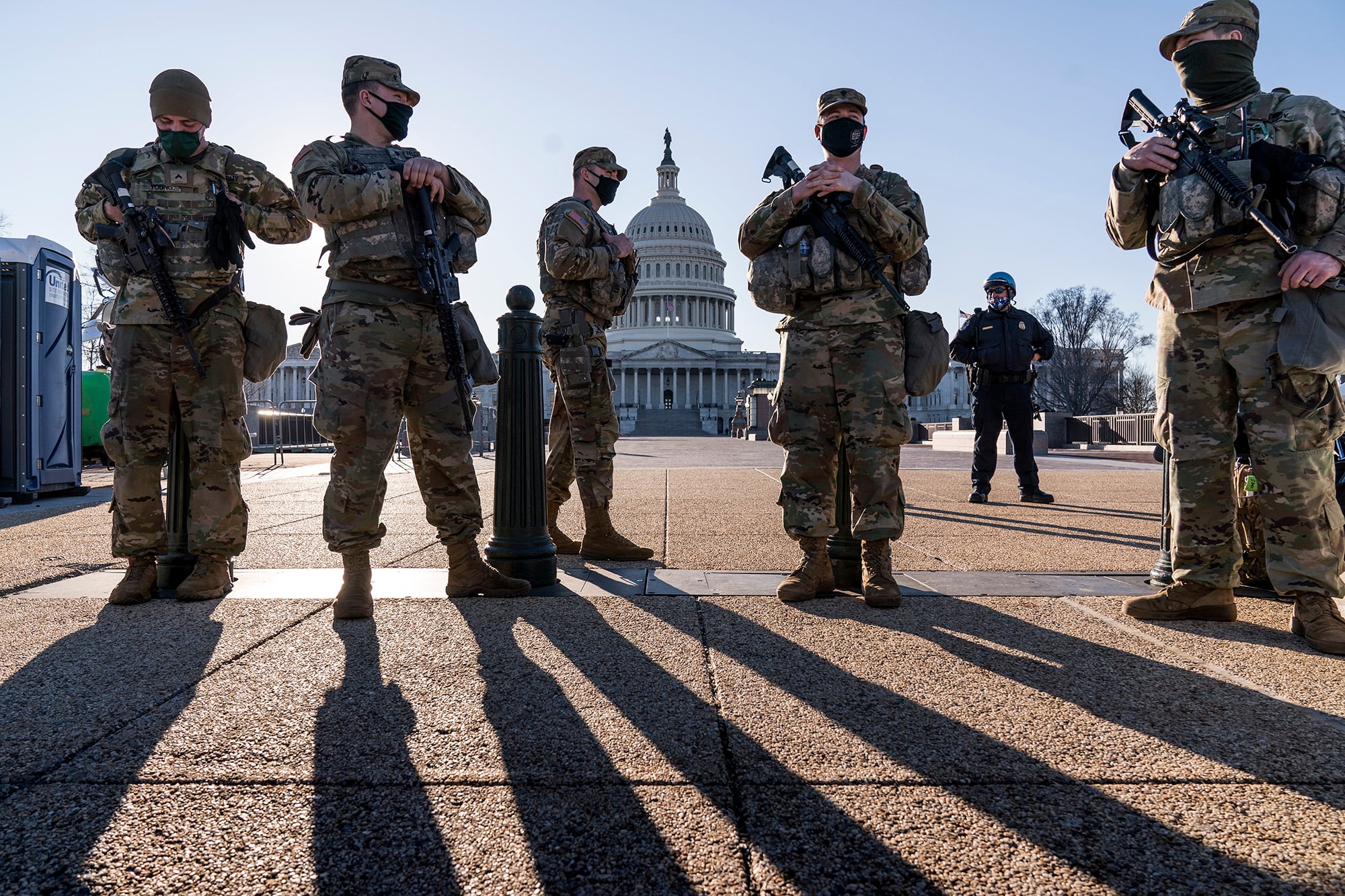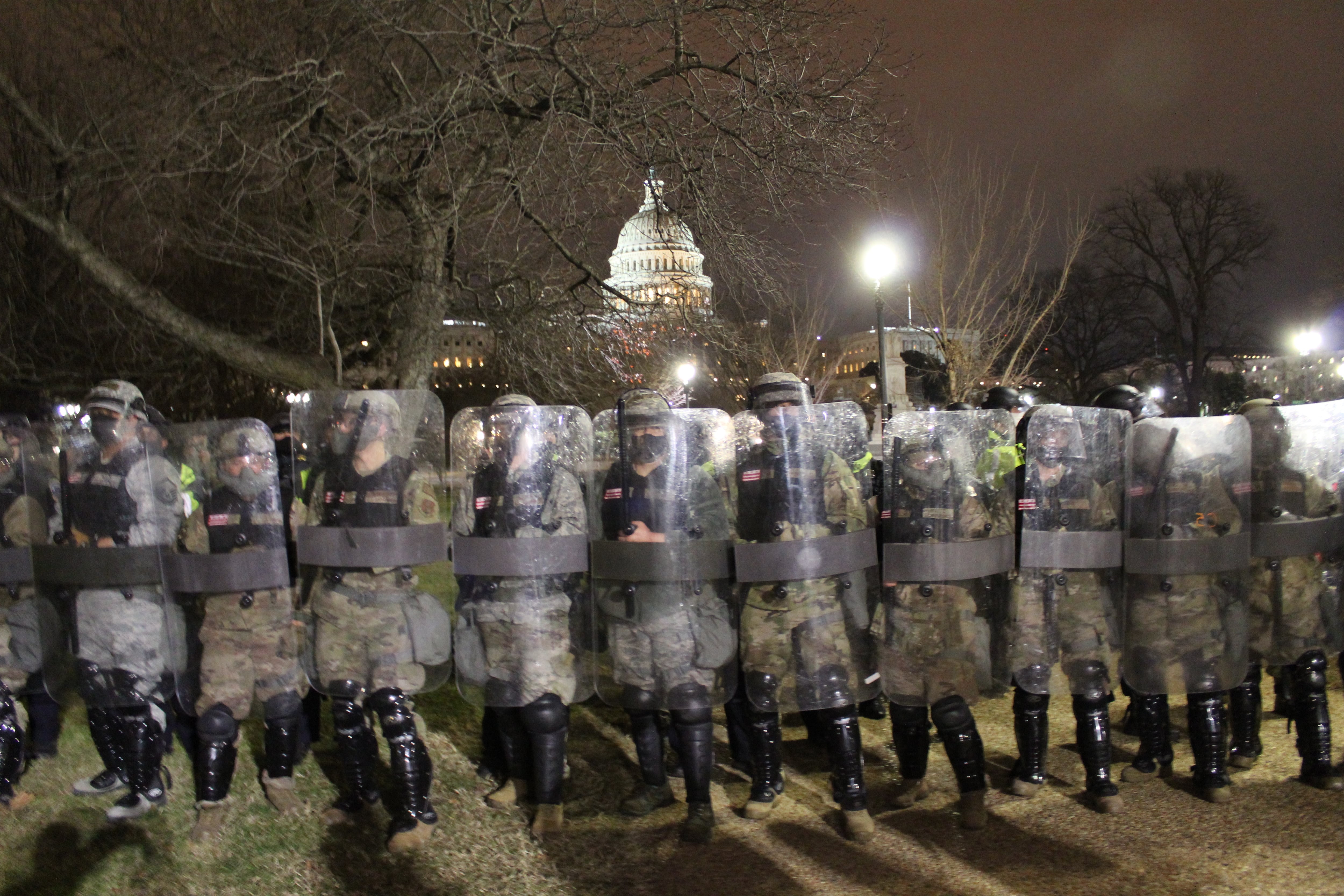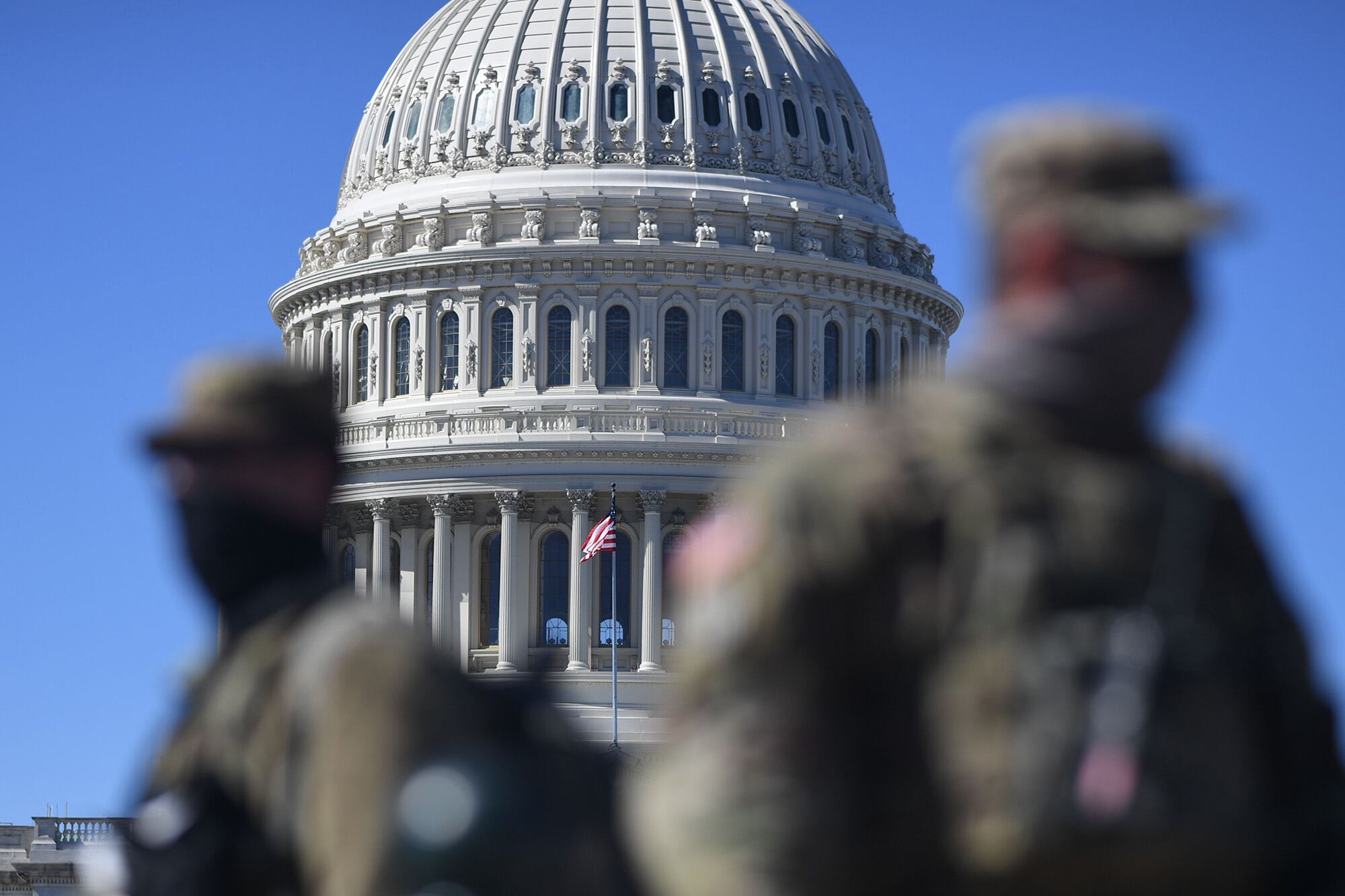A new Senate report into the Jan. 6 attack on the Capitol building blames numerous communication and planning errors related to military support which contributed to the security failures of the day but stops short of calling for a semi-permanent National Guard force to help protect Congress.
However, members of the Senate Homeland Security Committee, which compiled the findings and made them public on Tuesday, said U.S. Capitol Police and other congressional security officials must have simpler, clearer procedures to request emergency medical help from Defense Department officials if a similar situation occurs in the future.
“As the attack unfolded, [U.S. Capitol Police Chief] Steven Sund lacked the authority to request National Guard assistance unilaterally,” the report states.
“Under the existing statute, the chief may obtain support from law enforcement and uniformed services only after the Capitol Police Board declares an emergency. This process constrained Steven Sund’s ability to act quickly during the attack and contributed to the delay in the provision of assistance.”
RELATED

The report’s release follows a similar review authorized by House officials earlier this spring led by retired Army Lt. Gen. Russel Honoré, best known for directing military relief efforts in the wake of Hurricane Katrina in 2005.
Recommendations from that investigation included establishing a permanent military police battalion staffed by rotating Guard and reserve troops to help provide “quick reaction” support in case of future violence. House lawmakers included $200 million for the idea in a supplemental bill approved May 20, but the proposal has stalled in the Senate.
Instead of that dedicated force, the new report calls for defense officials to “practice the mobilization of National Guard members from neighboring jurisdictions to provide immediate assistance and report to command and control in the event of an emergency.” That includes ensuring that guardsmen are “trained and equipped to respond to emergencies.”
The Senate report does not look into the causes of the day’s violence, which occurred as thousands of supporters of President Donald Trump moved from a heated rally on the National Mall to the Capitol building in an attempt to disrupt certification of the 2020 presidential election results.
Four rioters died in the event, and two Capitol Hill police officers died from injuries and trauma related to the security response.
Thousands of National Guard troops were deployed to help secure the Capitol grounds, but not until hours after the violence began. The Senate report, similar to past reviews, offers conflicting reports on the reason for those delays, most connected to communication and chain-of-command mistakes.
RELATED

Senate investigators also said that the decision not to include more military personnel in advance planning for the day — despite numerous public reports about the possibility of violence — appeared to stem from concerns over their involvement in racial equality protests in summer 2020.
“DOD was criticized for its heavy-handed response, particularly flying military helicopters over the protests in summer 2020,” the report states. “DOD officials cited lessons learned from the summer 2020 as guiding its decision-making for Jan. 6. DOD officials believed it needed ‘control measures’ and ‘rigor’ before deploying [National Guard] personnel, including a clear deployment plan to avoid the appearance of overmilitarization.”
Lawmakers behind the new report said they hoped the recommendations will be implemented swiftly to avoid any future missteps. House leaders have said they expect Senate consideration of their $1.9 billion security supplemental as a way forward on the issues.
Leo covers Congress, Veterans Affairs and the White House for Military Times. He has covered Washington, D.C. since 2004, focusing on military personnel and veterans policies. His work has earned numerous honors, including a 2009 Polk award, a 2010 National Headliner Award, the IAVA Leadership in Journalism award and the VFW News Media award.









